Ok, ok... Finally, I've decided to write about my week in Lilongwe from Oct. 28-Nov. 2. I truly apologize for the late arrival of these stories. I even had one of my faithful Malawian readers write to me in Chichewa (Thanks to Deliwe for the translation, which I think she worded in a much nicer way than it was actually intended), chastising me for taking so long in writing about my week in Lilongwe. He or she even called me 'lazy' for not writing and uploading the pictures last week! Ah, that cut me to the core!! How many blogs do you know of that are actually written by full-time working professionals (not unemployed web-surfers) which actually feature updated (witty, creative, lively) posts EVERY day? I'd venture to say mine is the only one!! If you can find another, please let me know! Lazy! HA! Maybe that reader just doesn't like bugs... SORRY! ;-)
OK, so, I do have another story about the 'Village to Village' orphanage library/reading room project which is officially underway Monday morning, but I'll save that one for tomorrow, as I don't want to disappoint more readers by delaying the Lilongwe stories one more nanosecond.
I think I'm a bit worried that I built up the Lilongwe experience so much that perhaps now, a week later, it won't seem so incredibly interesting, and perhaps all of you (including the person who called me 'lazy') will be let down by the lack of thrill and intrigue of that week... perhaps I can 'beef it up' a bit... I'll do my best!
Since it has been over a week since I returned from my excursion, I'd just like to remind the 3-5 faithful readers out there that the reason I was sent was to work with a team of Domasi College of Education lecturers sent to the 'Lilongwe zone' of secondary schools and Teacher Training Colleges at which our 'traditional' (meaning resident, non-distance-learner) students are currently performing their teaching practice duties. What's interesting about the teaching practice here is that it is done over several years, rather than just at the end of the students' 4 years of study, which is usually the case in the U.S. These students are actually sent out for practice in their 2nd, 3rd, and 4th years of study, and each time they are observed by DCE lecturers an average of 4 times. Of course, the goal of these observations is to give feedback for student improvement, rather than just to determine whether they've 'passed' or 'failed' this practicum portion of their programs. I think it's an excellent experiential model for any good education program, and this in itself was impressive to me.
The week in itself started a bit late, as the chief coordinator, Dr. Kalande, had a church engagement that delayed the start of our trip by about 3 hours. She had visited my house on the day before (Sat. Oct. 27) to let me know, but since I wasn't home, Deliwe relayed the message, but somehow misunderstood that we were leaving at noon. Of course, I was ready to go on time (for once, as my close friends/family can attest), and then ended up waiting a good 2 hours, until I saw the deputy principal, Mr. Mwanza, driving past my house, and found out the actual departure time was changed to 3 p.m. Oh, well... I got some papers graded in the meantime.
The other big triumph for me was that I managed to pack a week's worth of clothing and toiletries into one small backpack. Again, my close family/friends will be amazed by that one... Ya, I only brought 3 skirts and 5 shirts, and no extra outfits. I also wore everything I packed. You'd have to know me well to know that was a big milestone. It was packed to the gills, but I got it all in.
The way up was relatively uneventful, so I'll skip over the details. We got in after dark, checked into the hotel, and then had dinner at a nice Indian-owned restaurant. One thing I noticed during this trip is that Malawians (well, at least my colleagues) seem to have one favorite meal to eat when on the road-- fried chicken and chips ('French Fries' for the 'Yanks' out there...). I couldn't really understand why, but a couple of my colleagues ate this same meal at least once a day every day during that week. Deliwe did explain to me this past weekend that it's something people don't generally cook at home, so I guess this could be a good reason.
So, we settled into our rooms, had a short meeting at around 8 p.m. during which we talked about the goals for the week and chose a 'programmer,' (i.e. 'scheduler')which was the poor guy who had to stay up late every night figuring out which students each lecturer should observe based on the subject being taught, the student teacher's schedule, the location of the school, among other factors. Needless to say, the chief and the programmer were up very late that first night planning the schedule. (and also up late most other nights that week...). This is an overwhelming project in terms of coordination, as you can probably imagine.
The other huge challenge for me was the fact that we started our days very early in comparison to my usual schedule here. I generally get up after 7 a.m., but in this case we were usually leaving the hotel by 6:45 a.m., and of course eating breakfast before that, so these were much earlier mornings for me.
For me, one of the biggest thrills of staying in the hotel ("The Capital City Motel") was the presence of a T.V. Though I hate to admit it, I have missed watching T.V. a bit. However, much to my dismay, there were only about 3 channels, and only one of them had anything interesting airing on any given night. This particular channel changed networks at different times of day and on different days. On Sunday night, they were airing a program on the National Geographic Channel, which is my favorite cable channel back home. I was really psyched about that. However, every other night, it aired as MTV. Now, when I was a teenager, I loved MTV. But, those were the days of The Police (Best band EVER), Duran Duran, Split Enz, U2, Cindy Lauper, The Cars, INXS, Madonna (early years), and the list goes on and on... The stuff they're playing now-- well, I just don't get it. Ya, I'm old. Now I finally understand how my mother felt when my little sis Heather and I wanted to watch that channel for hours on end... Still, it was SO MUCH COOLER and MORE FUN then! But, I digress...
The only other 'staple' program was 'Big Brother Africa.' Holy snooze button! I've never seen a more boring program in all my life. They actually show people sleeping. Sleeping! And they call this entertainment! Yes, I know... this show started in the U.S. Reality TV is another American export I can hang my head in shame about. Sorry Africa!! At least there's no McDonald's here in Malawi! Count your blessings every minute on that one...(actually, I have yet to see an American chain restaurant in this country... this is a first for me, and I've been to a few different countries, so that's saying a lot... Wow, what a relief!)
So, back to business. Each day, we visited different schools, and usually observed either 3rd year or 4th year students teaching in secondary schools or Teacher Training Colleges. For the non-Malawians, I have to explain the system here a bit. It's at least partially based on the British system, so is quite different from the system we have in the States. First of all, primary education here is from 1st to 8th grade-- it starts at "Standard One" and ends at "Standard Eight." After each level, students take big national exams to pass to the next level. After "Standard Eight," students can go on to Secondary School, but this is somewhat limited, as it is not free (though primary schools here are free). So, only the students whose parents can afford school fees can attend secondary school, which is similar to the American High Schools, with four grades, known as "Form One" to "Form Four." After Form Four, those who want to go on to college take college entrance exams, and those exams determine whether you can continue into post-secondary education. Of course, the exams are quite tough and competitive, so only the intellectual and socially elite (i.e. those with the means) generally have the privilege to continue their education past the secondary level.
In addition to traditional state-run universities (Like the University of Malawi, of which Chancellor College is a branch), there are also several Teachers' Training Colleges (TTC's). These are focused on training teachers for primary-level education certificates (mainly to address the ever-present teacher shortage here), which are earned in two years-- one year of classwork, and one year of student-teaching. Many students at Domasi College of Education train to work at these colleges, training future primary school teachers. Most of these students are trained primary school teachers themselves who go on for a diploma in order to train teachers.
OK, so there's the background. So, each day we travelled to one or two different schools, or TTC's, observed classes, filled out an evaluation form, and discussed it with the student teachers. For me, it was a great opportunity to see what the typical public school classrooms are like, and also to meet some of the traditional students at DCE, since I arrived here just after their programs ended, so didn't have a chance to meet or talk with them. What really made an impression on me was the huge challenges these teachers face, often with class sizes in the 70-80 range, very limited resources, and sometimes very worn-out facilities. Despite all this, they still manage to teach well-planned, orderly lessons, and overall the students are well-behaved and eager to learn...(I wonder how my public schoolteacher friends are reacting to this). Unfortunately, I was a little shy about taking my camera out until later in the week, as the most interesting classroom for me was the first one we visited on Monday morning (myself and Jacqueline, the Dean of Education, who was guiding me through that first day, since I was new to the process), due to the fact that the class was VERY big, and very crowded, often with 2 or 3 kids sitting at one desk.
That class also had its weaknesses, one of which being the fact that this very young, inexperienced student teacher was working on tag questions (i.e. You don't like Indian food, do you?), and made the mistake of having students demonstrate in front of the class two-by-two, choosing randomly from students who raised their hands. Each time, she worked it out so that there was one boy and one girl doing the small dialogue, and of course they each had to come up with a tag question which the other student then had to answer. During one such practice, the very brave girl asked her male counterpart, "You are very handsome, aren't you?" Of course, this was followed by roaring laughter on the part of the young, hormonal, teenage class (Form one, I believe, which is about age 13/14, if I'm not mistaken). After the roaring laughter finally died down, the cute young boy confirmed for her, quite confidently, smile beaming across his face, "Yes, I am!" (again followed by roaring laughter). I can't help following that story with a tag. Some things in life are truly universal, aren't they? Puberty, it appears, is definitely one of them. This was definitely the highlight of that lesson for all of those present.
Another thing I noted is that here, the teachers tend to take a very authoritative tone with the students. I suppose this is somewhat necessary with such big classes, but at times it seemed a bit harsh from an American point of view. In addition to that, in some ways it didn't agree with the learner-centered, interactive approach championed by DCE. This, among other factors, led to a bit of a gap between practice and theory as it was outlined on our observation logs, and I, for one, upon following the rubric, turned out to be the toughest critic/grader. I was a bit worried about this, but my colleagues assured me I was on the right track, and that the disconnect actually exists in the gradual transformation taking place currently from a teacher-centered to a learner-centered approach in secondary education. Of course, things like class size and limited materials also factor into these matters, and there is a way to go, though it was good to see that DCE is on the right track as far as educational theory is concerned. The question may be as to whether learner-centered approaches are always realistic considering the large class sizes, as well as the cultures within which these schools operate. This is something I hope and expect to learn much more about during my stay here.
So, other than the classroom visits, we did get a chance to do a bit of sightseeing, the first of which was to the Deputy Principal, Mr. Mwanza's village on Tuesday afternoon. The pictures at left tell all. We went to visit his mother and brother briefly since we were in the area. This visit was preceeded by a visit to a roadside stand to buy beef. This was a bit of a culture shock for me, as the vendors basically have a side of beef hanging from a hook (like you might see in a slaughterhouse), and you choose the part you want, after which they saw it off with a big knife, put it on a basic scale, and then throw it in a plastic bag for you. All the while, flies are crawling on the meat. Ya, enough to make even this carnivore a confirmed vegetarian. As a sidenote, I'm much less of a carnivore here in Malawi, as meat is really eaten as a treat here. I think I've had beef once since I came. I've had chicken maybe 5 or 6 times. Fish has been my major animal-based protein, and Deliwe usually cooks that about once a week. Ya, we're definitely eating way too much meat in the U.S., among other things... I'd better not 'go there' just yet. This is one of my favorite topics to discuss here... the oversized American populous... whooaaa...
So, we had an interesting, but quick visit. Of course, the beef, as you now know, is a very special treat here, so Mr. Mwanza's mother was very happy to see it. I did the Mzungu thing and took out my camera, encouraging the throngs of village kids to crowd around, fighting for a spot in every picture. As usual, it was fun, and interesting, and I was a complete oddity. The pictures at left say it all.
In addition to that, on our last afternoon in Lilongwe on Thursday, we made a quick stop at Dr. Hastings Kamuzu Banda's Memorial site. This was a kind gesture also made by Mr. Mwanza, who, incidentally, is one of the best 'bosses' I've ever had. I was paired with him for most of the week, and found him to be excellent company, quite enlightened, humorous, friendly, frank, and pleasant. I haven't had a supervisor like that in quite some time, and I must say it's so refreshing to be around a person in power who is actually confident, respects the people working for him, and isn't afraid to show that respect, and just 'be real.' Let's just say that as I get older, that kind of 'boss' seems to get more and more scarce. Thanks, Mr. Mwanza, for restoring my faith in the possibility that I can work for another human being without losing my mind!
In any case, for those who need a quick history lesson, Dr. H. Kamuzu Banda was what Most Malawians refer to as the "Founding Father of Malawi." He enjoys this title because he helped lead the country in its revolution against the British which was accomplished in 1964. He then pronounced himself 'life president,' and ruled the country as a dictator for 30 years, until giving up power due to internal and external pressures in 1994. His regime has been described as very autocratic, heavy-handed, and intolerant of opposition. It is said that many of his rivals, including some intellectuals who challenged his policies, were actually either exiled or fed to crocodiles. Despite these criticisms, many Malawians (including Mr. Mwanza) look to him as their true leader, and as a 'father figure.' Unfortunately, the multi-party democratic system which was established in 1994 with the election of Bakili Muluzi, also was incredibly flawed, and the country ended up much worse off in a lot of ways after his 10-year reign ended in 2004. Muluzi has been blamed for a lot of the failings of the democratic system here, and is one huge reason that people long for the days of Banda, who at least kept a semblance of order, developed agricultural systems, and improved the infrastructure of the country.
In any case, I'm not a Malawian historian, but I've been doing a bit of reading on the subject lately (much of which was due to an essay assignment my Chanco students wrote which I finished grading last week), so I feel like I've gained a lot of knowledge on the subject. My main point is that though Banda is highly controversial, he is also regarded here as a great man who made some significant developments in the country. I'm sure a few of my faithful Malawian readers will set the record straight if that conclusion is incorrect... ok, bring it on! I can take it! But, if possible, can you write it in English for ALL of us to enjoy? Zikomo Kwambili! (Thanks a bunch!)
OK, so, with that, I think I'll close for the evening. It is approaching midnight, and this post is quite long. I think I've covered the main events of my week in Lilongwe, without getting into too much exhaustive detail (hmmm... that may be debatable, at best)... But, at least this time NO ONE can call me lazy in ANY language... at least not truthfully, that is! ;-)
Thanks for sticking with me through it all, and exhibiting the greatest virtue, patience, during that crazy spider-laden week!! (BTW, it's been raining a lot, so I'm bracing myself for the next ninja spider outbreak...) Tiwonana Mawa!
DISCLAIMER
This website is not an official U.S. Department of State website. The views and information presented are the English Language Fellow's own and do not represent the English Language Fellow Program or the U.S. Department of State.
Subscribe to:
Post Comments (Atom)






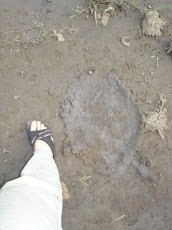













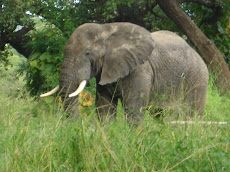



































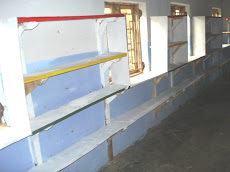




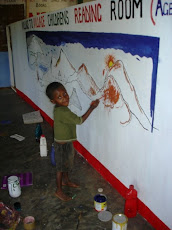








































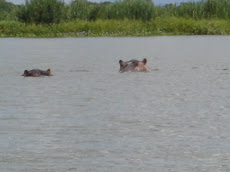

















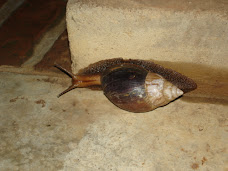






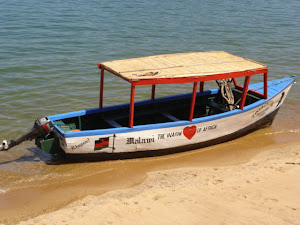














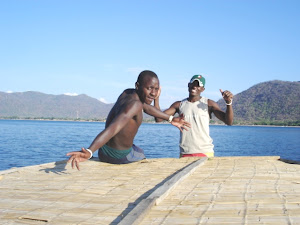
















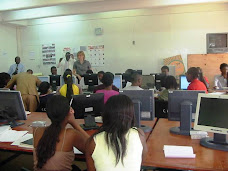
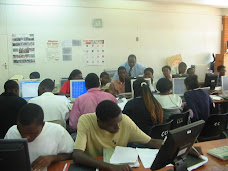
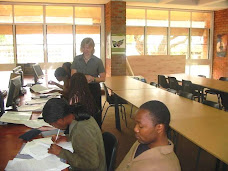








































































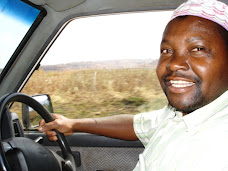




























3 comments:
The problem with the delayed posting on your trip to Lilongwe manifests itself here. Nov 1 was not a Saturday, you meant Oct 27, right? Anyways, nice stories and nice pics too.BTW, my wife is a primary school teacher, and she went through St. Joseph TTC in Dedza, which is also my home disitrict!
Hey, 'De Noel,' Thanks for the correction! Duly noted, and corrected. You're right, as the time passes, the details fade from my memory a bit...;-)
That's cool about Dedza, and your wife. You must miss the place a lot! I really liked it there...
Again, I'd love to meet you sometime in Blantyre... e-mail me at jbeilke@yahoo.com if you're interested, and let's exchange phone numbers! Peace, JenX
Very interesting reading your description of teaching in Malawi in light of the material I'm reading now in school. Long story short: trust your instincts. There is no "one right teaching method". Methods should be adapted to the context and culture based on the needs of the students.
Keep on keepin' on,
Bridget
Post a Comment